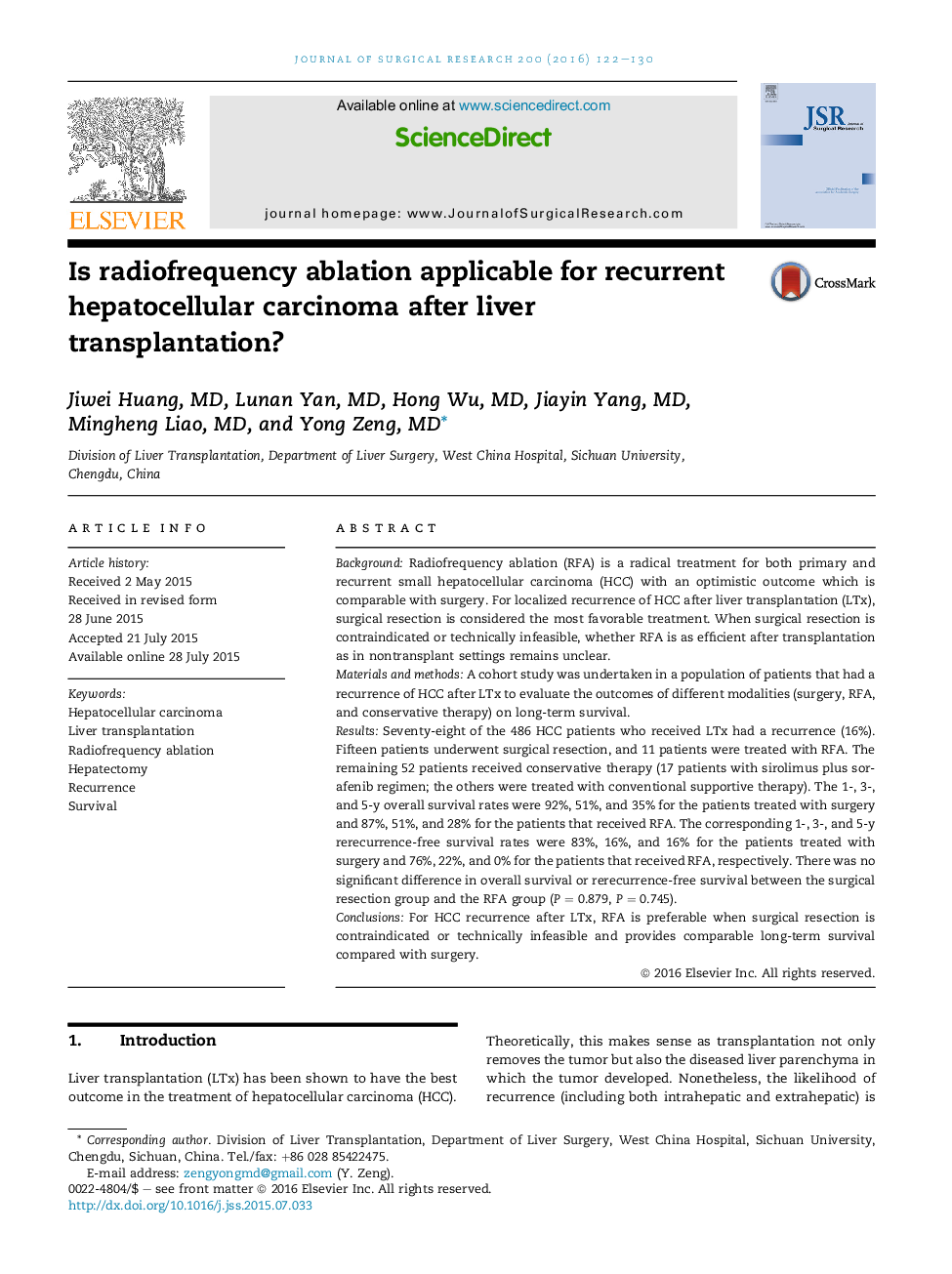| Article ID | Journal | Published Year | Pages | File Type |
|---|---|---|---|---|
| 4299501 | Journal of Surgical Research | 2016 | 9 Pages |
BackgroundRadiofrequency ablation (RFA) is a radical treatment for both primary and recurrent small hepatocellular carcinoma (HCC) with an optimistic outcome which is comparable with surgery. For localized recurrence of HCC after liver transplantation (LTx), surgical resection is considered the most favorable treatment. When surgical resection is contraindicated or technically infeasible, whether RFA is as efficient after transplantation as in nontransplant settings remains unclear.Materials and methodsA cohort study was undertaken in a population of patients that had a recurrence of HCC after LTx to evaluate the outcomes of different modalities (surgery, RFA, and conservative therapy) on long-term survival.ResultsSeventy-eight of the 486 HCC patients who received LTx had a recurrence (16%). Fifteen patients underwent surgical resection, and 11 patients were treated with RFA. The remaining 52 patients received conservative therapy (17 patients with sirolimus plus sorafenib regimen; the others were treated with conventional supportive therapy). The 1-, 3-, and 5-y overall survival rates were 92%, 51%, and 35% for the patients treated with surgery and 87%, 51%, and 28% for the patients that received RFA. The corresponding 1-, 3-, and 5-y rerecurrence-free survival rates were 83%, 16%, and 16% for the patients treated with surgery and 76%, 22%, and 0% for the patients that received RFA, respectively. There was no significant difference in overall survival or rerecurrence-free survival between the surgical resection group and the RFA group (P = 0.879, P = 0.745).ConclusionsFor HCC recurrence after LTx, RFA is preferable when surgical resection is contraindicated or technically infeasible and provides comparable long-term survival compared with surgery.
